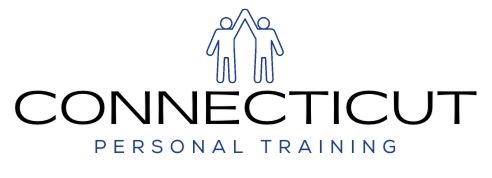As interest in health and wellness continues to rise, increasingly, individuals are seeking the help of nutrition coaches to tell them how to eat better, feel better, and live longer. If you want to be a certified nutrition coach, one of the questions you may be asking yourself is: how much will I earn?
This guide will explain how much certified nutrition coaches make in the United States of America, what variables determine earnings, and how to earn more in this fun and fulfilling industry.
What Is a Certified Nutrition Coach?
Before getting into the statistics, it should be made clear what a certified nutrition coach is.
A certified nutrition coach assists clients in making better food choices, eating better, and achieving a particular goal, whether it is weight loss, muscle gain, or managing energy levels. The nutrition coaches cannot work in medical facilities as registered dietitians can because they are licensed.
They are allowed to work in non-clinical areas such as:
- Gyms and fitness centers
- Wellness clinics
- Online coaching platforms
- Private practice
Certification is typically done through programs such as NASM, Precision Nutrition (PN), ACE or ISSA. These programs offer a solid background of nutritional science, coaching skills, and client support.
Average Salary of Certified Nutrition Coaches in the United States
National Averages
Based on the information of such career websites as ZipRecruiter and Glassdoor (as of 2025), an average annual salary of a certified nutrition coach in the U.S. varies between 40,000 and 65,000 dollars. This can however differ by a great deal depending on a number of factors (which we shall discuss below).
Here’s a rough breakdown:
| Experience Level | Annual Income Range |
| Entry-Level (0–2 years) | $30,000 – $45,000 |
| Mid-Level (3–5 years) | $45,000 – $65,000 |
| Experienced (5+ years) | $65,000 – $90,000+ |
Hourly Rates
Some nutrition coaches charge per hour, particularly those who are freelance and/or own their business. The median rates are 30 dollars to 75 dollars an hour depending on the experience and the location.
Factors That Affect How Much You Can Earn
Location
Where you live matters. Nutrition coaches in big cities such as Los Angeles, New York or San Francisco are more likely to earn more since the demand is high and the cost of living is higher as well. In the meantime, the rural areas or small towns can provide lower rates.
Type of Employment
- Part-time work: You may get a regular salary with benefits.
- Freelance/Independent coach: You can charge a higher rate but you have to find your own clients.
- Online coaching: Some nutrition coaches conduct their services online, using Zoom or apps. This can expand your client base nationwide or globally.
Certifications and Education
With a respected certification such as Precision Nutrition Level 1 or 2, NASM CNC, or ISSA Nutritionist, you can increase your credibility and charge more. Completing further training in fitness, wellness or psychology can also add to your value.
Niche or Specialty
Specializing can boost your income.
Coaches who focus on niche areas such as:
- Sports nutrition
- Plant-based diets
- Weight management
- Gut health
- Women’s hormones
Marketing and Business Skills
It is not sufficient to be a great coach, you need to be able to market yourself, particularly when you are self-employed. Coaches who spend on branding, social media, email marketing, and client retention tend to make a lot more.
Potential Income Streams for Nutrition Coaches
Certified nutrition coaches tend to be multifaceted with more than one service offered.
Here are some examples:
One-on-One Coaching
This is the most popular service, whether it is an in-person or online service. You may charge per session or develop monthly packages (e.g., $300/month to have weekly sessions and check-ins with me).
Group Coaching Programs
Running group coaching will enable you to assist more people simultaneously. As an example: 10 clients in a 6-week group weight-loss program with a fee of $200 each would generate $2,000 in a month and a half.
Online Courses or Ebooks
You can produce digital products if you like writing or instructing. A well-marketed online course can generate passive income.
Speaking Engagements and Workshops
You can give a corporate wellness talk, school seminar, or fitness expo and share your knowledge as well as earn income.
Affiliate Marketing and Brand Partnerships
Other coaches sell health-related products, supplements and earn a commission based on sales through affiliate programs or sponsored content.
High-Income Scenarios: What’s Possible?
Some certified nutrition coaches are earning six figures.
But they usually:
- Run their own business
- Offer online services
- Serve a niche market
- Have 5+ years of experience
- Invest in marketing and business systems.
Here’s a quick example:
A coach earns 300 dollars a month and has 30 clients at a distance = 9,000 dollars a month or 108,000 a year.
It is not everyone who wants that kind of workload or responsibility but it is possible with the right systems in place.
Tips to Increase Your Income as a Nutrition Coach
If you want to increase your earnings in this sphere, you can use the following tactics:
Invest in Continued Education
The better and more knowledgeable you are, the higher you can charge. Think about higher level qualifications or education on other areas such as fitness training or behavior change coaching
Build a Personal Brand
Use social media, such as Instagram, YouTube, or a personal site to demonstrate your knowledge, testimonials, and services.
Offer Tiered Services
Offer varying degrees of support, including a self-guided program, group-based coaching, and premium 1-on-1 support to attract new clients and make more money.
Track Results and Testimonials
People want proof. Use client success stories (with permission) to show your value.
Use Online Tools
Use apps to save time and scale business in meal planning, client check-ins, and habit tracking.



